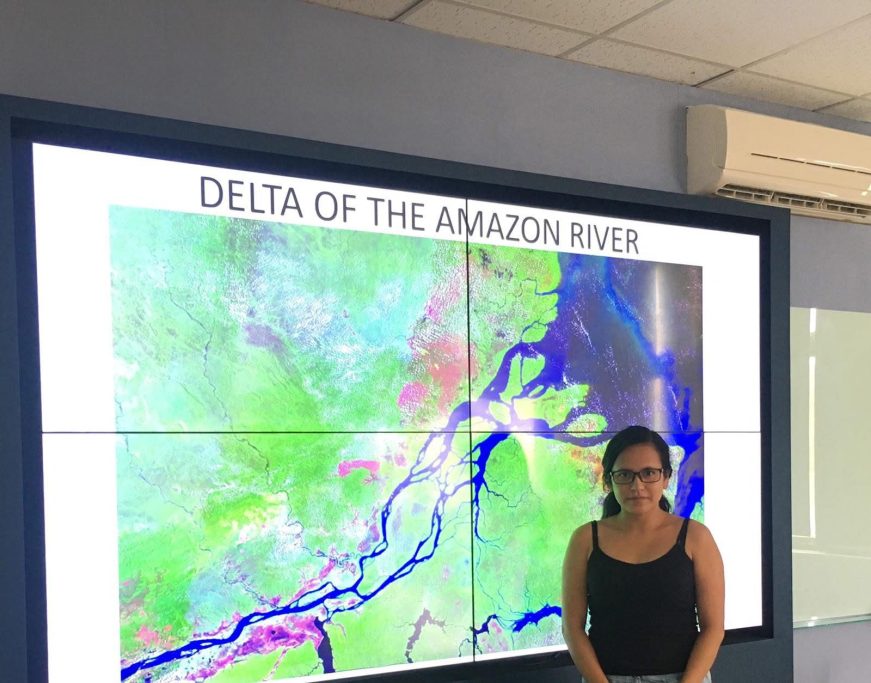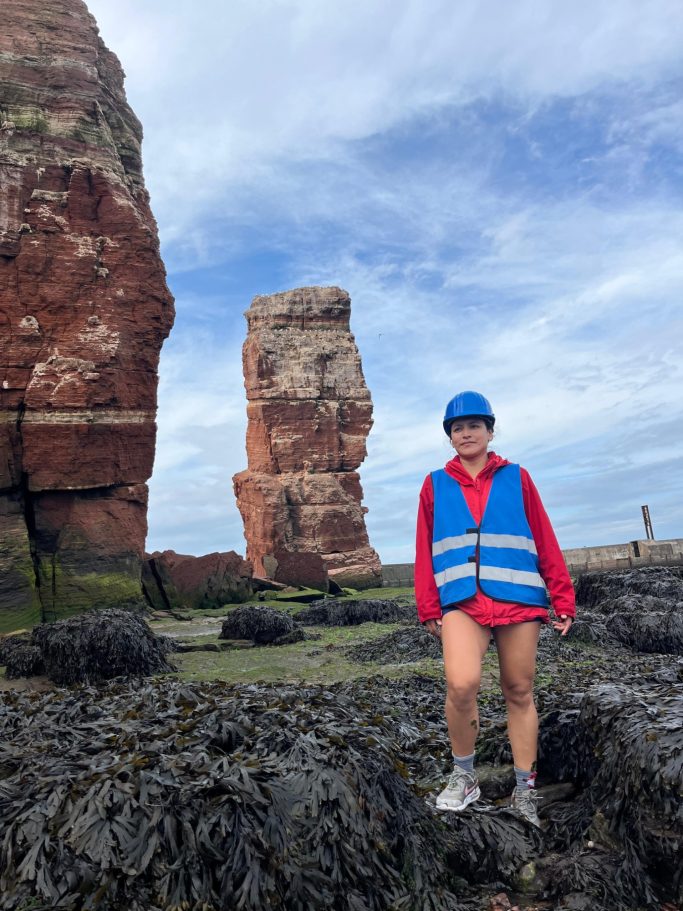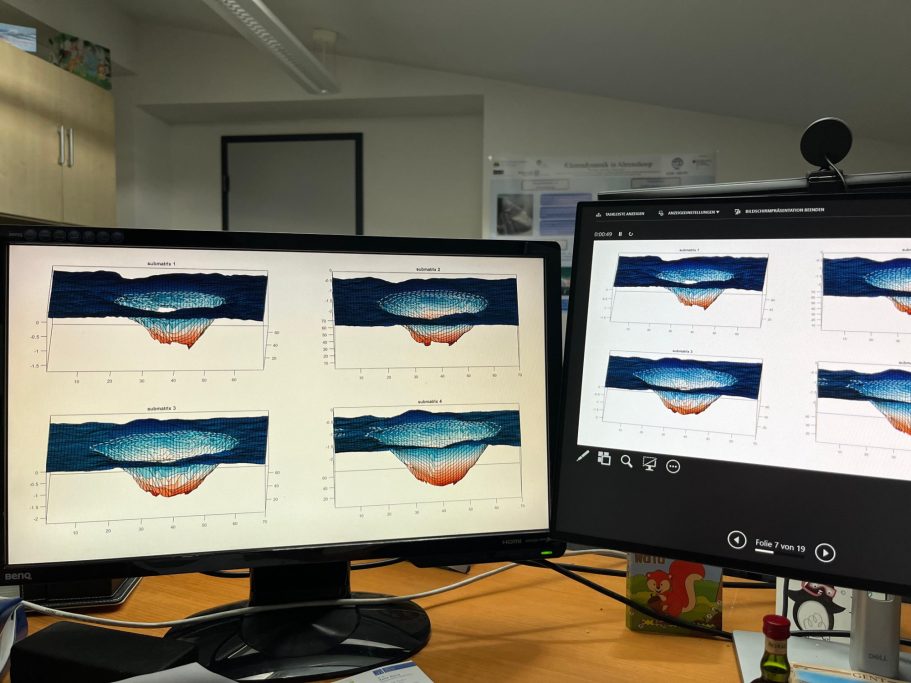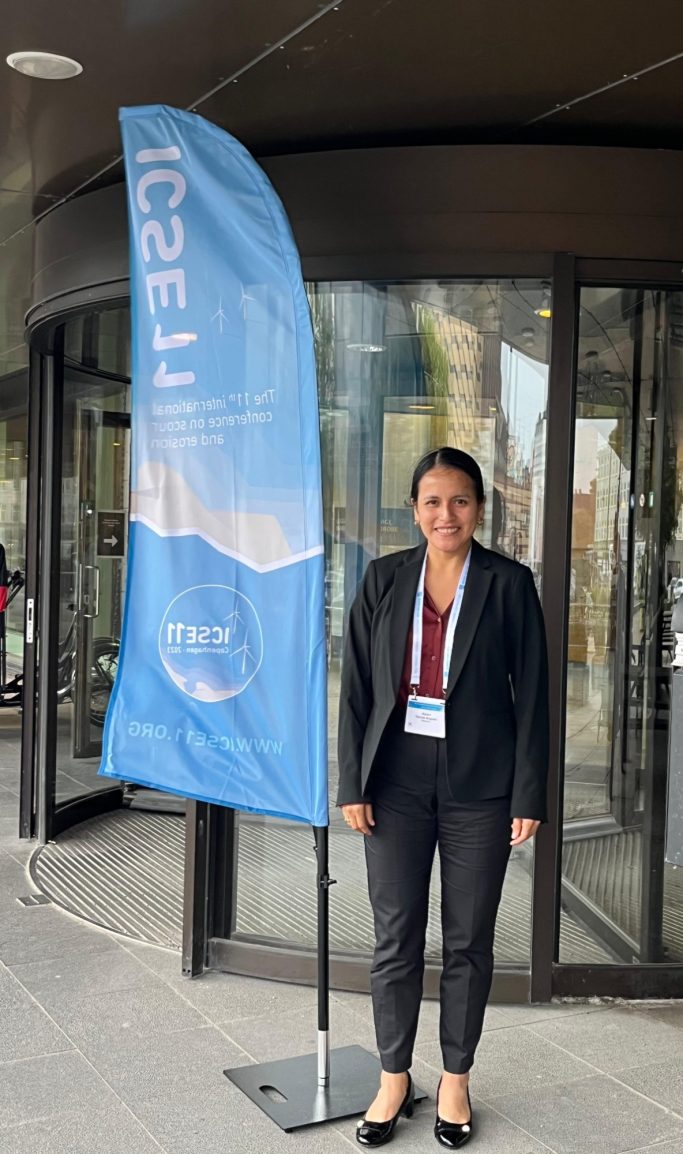From the Peruvian Amazon river to the German North Sea
by Karen Patricia Garcia Angulo (26.05.2025)
My name is Karen Patricia Garcia Angulo, and my story begins in the heart of the Peruvian Amazon. I was born and grew up in Requena, an small city right beside the Tapiche River, a tributary of the Ucayali river, which is part of the confluence of the largest Amazonas river. The place from where I am from leaded my early interest in the environment and its protection. For that reason, I have pursued a bachelor's degree in Environmental Engineering at the National University of the Peruvian Amazon in Iquitos. After graduation, I had the opportunity to work directly with rivers at the Hydrographic and Navigation Service of the Peruvian Amazon. My work experience gave me more questions to answer in my journey, and my desired to learn more took me across the globe to Taiwan, where I earned a master's degree in River Engineering at the National Taiwan Ocean University.
After that amazing experience of learning, my journey has brought me to Germany! I'm currently diving deep into my PhD in Ocean Engineering at the Ludwig-FranziusInstitut für Wasserbau und Ästuar- und Küsteningenieurwesen at Leibniz University Hannover. My current research is focused on understanding relationship between offshore wind energy development and the ecosystem.
I am currently working with the CoastalFutures project which develops diverse advice for the protection and sustainable use of the seas. How does my specific work within CoastalFuture connect to the bigger picture of ocean health and the impact we humans have? Great question! Ultimately, my project aims to promote a healthier ocean and reduce negative human impacts by supporting the sustainable management of marine resources. Being part of the CoastalFuture project means that my work aligns with important frameworks like the EU Marine Strategy Framework Directive and the German Adaptation Strategy to Climate Change. By developing models and various future scenarios, our project aims to equip policymakers with the information they need to make informed decisions for marine conservation, especially in the face of a changing climate.
When things get tough, I’m motivated by the greater purpose of my work: contributing to sustainable offshore wind energy solutions and marine conservation. The potential impact on ocean health and the environment helps me stay focused, just as running does. Running reminds me that persistence and consistency lead to progress, no matter how small the steps. Both my research and running teach me to push forward and focus on the long-term goal. They also provide a mental reset and ground me in the belief that challenges can be overcome with perseverance.
How does your working day look like?
My working day includes research, programming, and meetings with other researchers. We address questions, analyze broader impacts, and engage in discussions. I study references, apply existing methodologies, and sometimes create new ones to improve my research approach. This collaborative approach ensures that my work aligns with the latest advancements and considers the bigger picture of sustainable offshore wind energy and marine conservation.
If you could ask the ocean one question, what would it be?
How can we better understand and integrate your natural processes into sustainable management strategies to meet climate and conservation goals?
What kind of impact do you hope, your research will have?
My research aims to contribute to the development of sustainable management strategies for offshore wind energy and marine conservation. By improving our understanding of scour dynamics and sediment transport, I aim to support the decision-making process involved in planning and installing offshore wind farms in a way that ensures minimal environmental impact. Ultimately, I hope my research will help policymakers implement more effective conservation approaches and contribute to the long-term health of marine ecosystems.







